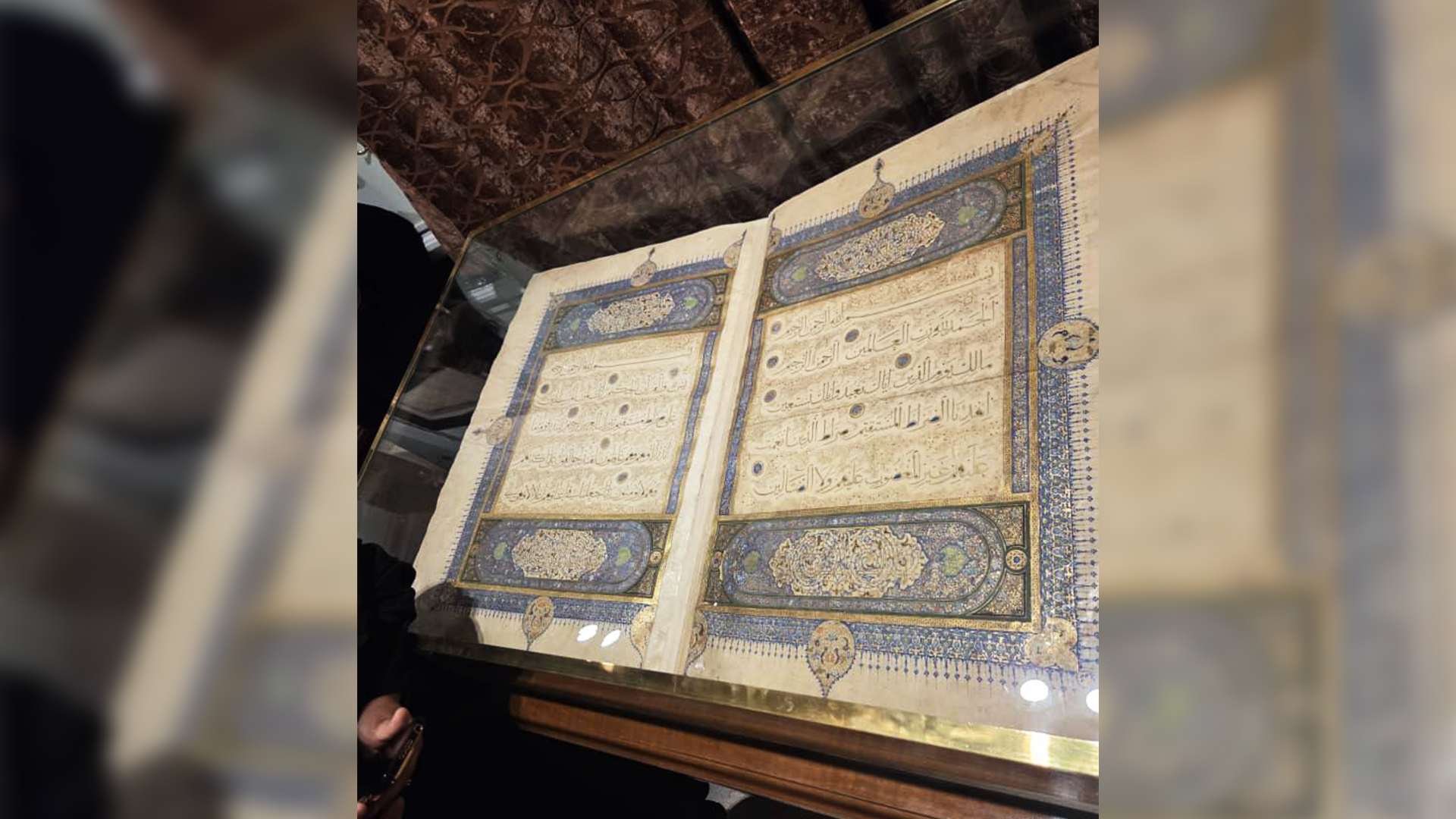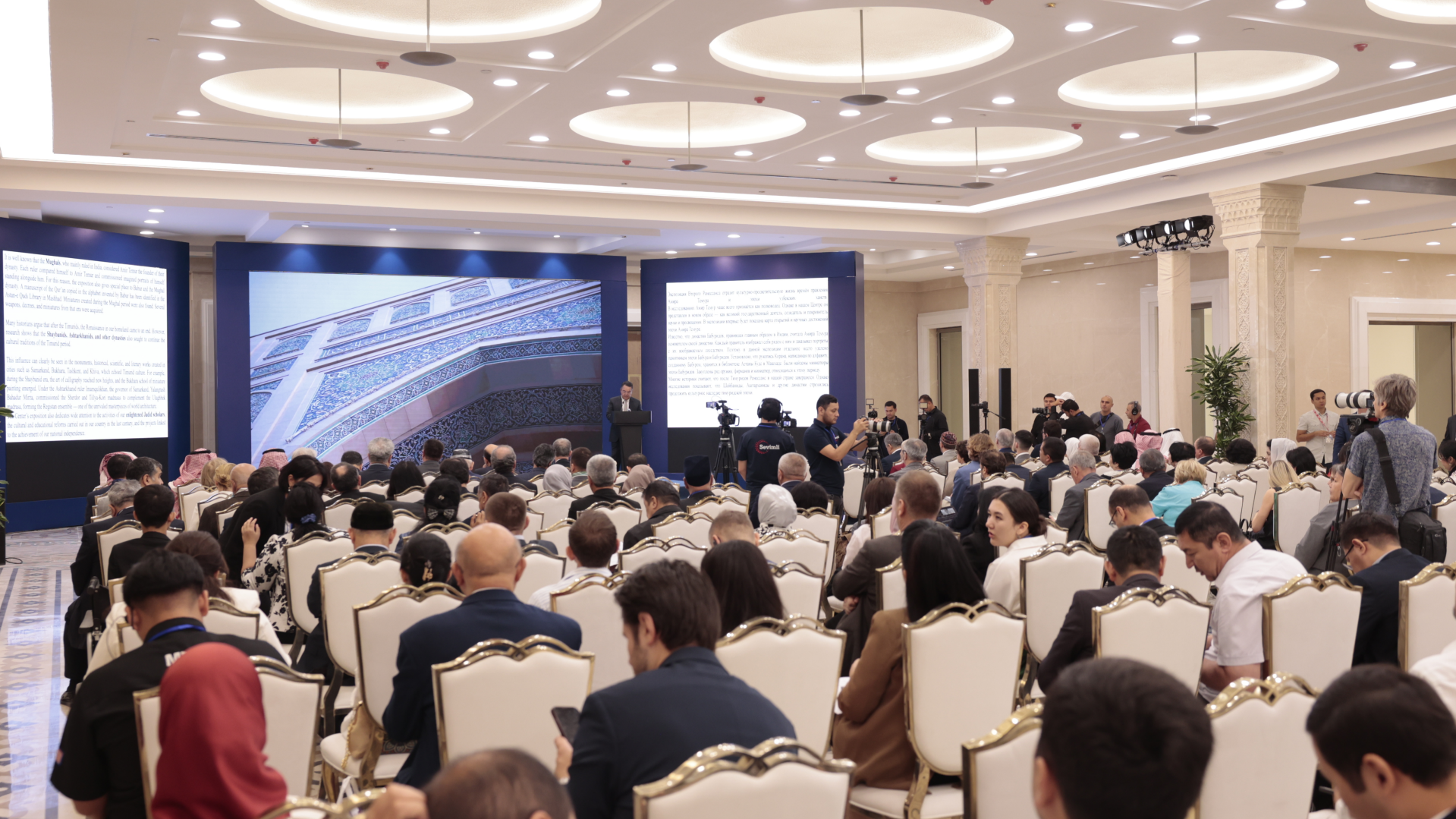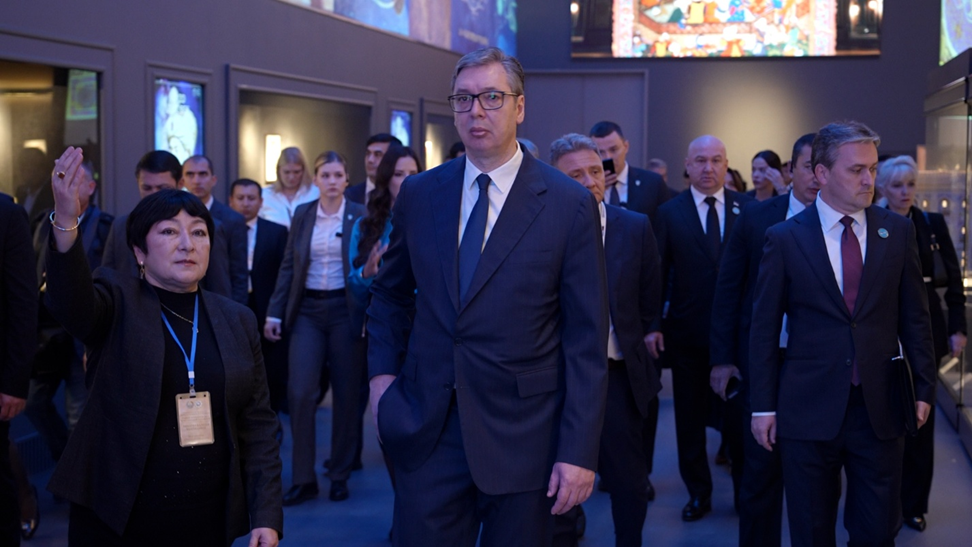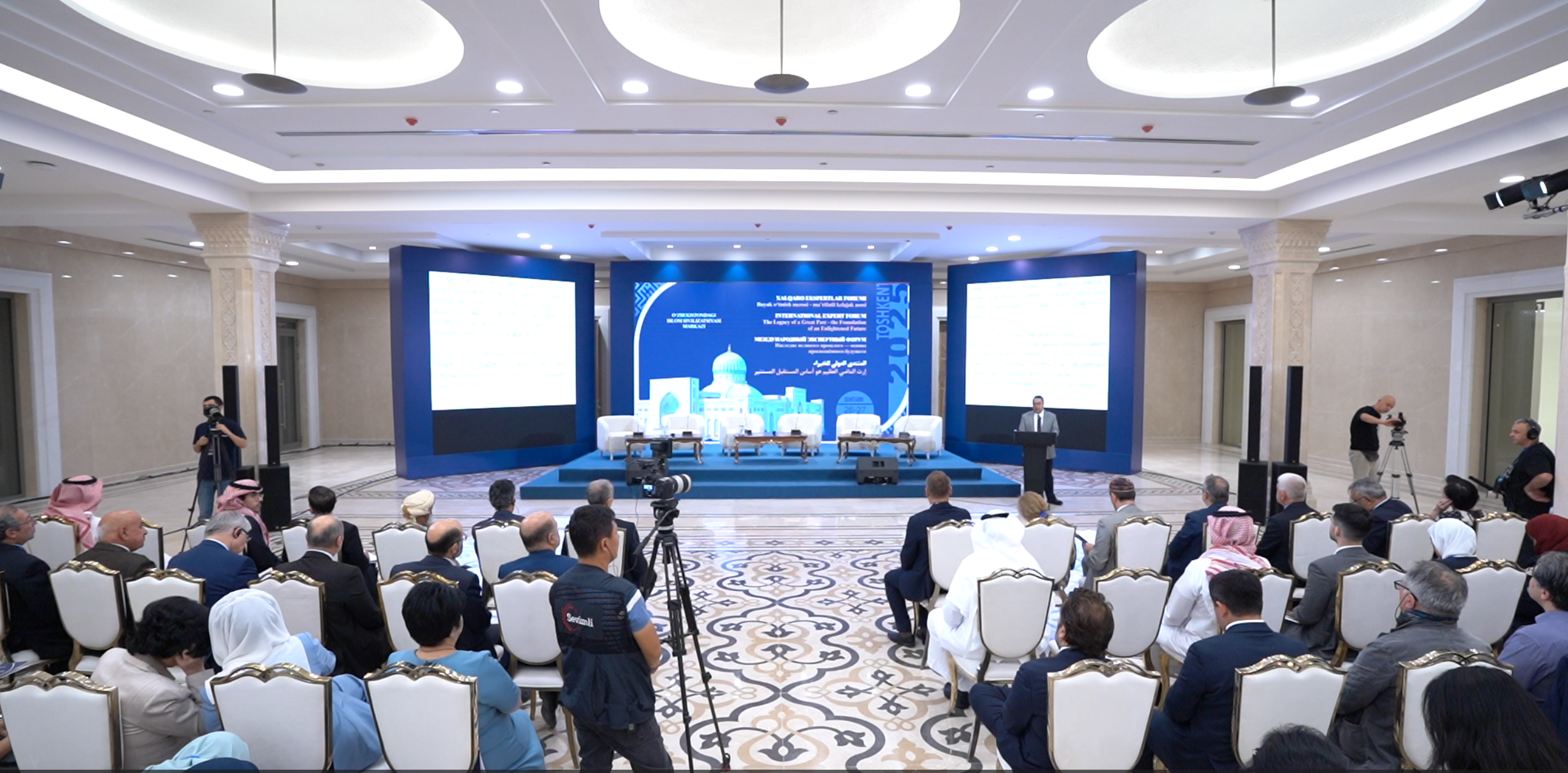A rare manuscript from the Timurid era and a copy of the decree of Abulghazi Bahadur Khan have been discovered in Iran.
🔴The rare find is expected to return to Uzbekistan and become a new addition to our cultural heritage

During a working visit to the Islamic Republic of Iran, the delegation of the Center of Islamic Civilization in Uzbekistan discovered the existence of a rare 15th-century Qur’an manuscript and a copy of the decree of Abulghazi Bahadur Khan.
The delegation, consisting of renowned scholar Abdulaziz Mansur, famous calligrapher Habibullah Solih, the Center’s academic secretary Rustam Jabbarov, and department head Khusrav Hamidov, held a series of meetings in Tehran, Mashhad, and Tus. During the visit, they provided information on Uzbekistan’s rich scholarly and cultural heritage, including the exhibitions being organized at the Center of Islamic Civilization, its electronic library, and digitization projects.
As part of the trip, various sources related to the history of our country were studied in local libraries, museums, and manuscript centers. In particular, during the visit to the Astan Quds Razavi Library, archives, and documents department in Mashhad, a rare find was made a selected copy of the Holy Qur’an transcribed in the early 15th century by the Timurid ruler Ibrahim Sultan.
This mushaf is one of the largest manuscripts of its era, containing several surahs. It stands out as a rare example of Timurid-era book art: colorful and harmonious decorations, high-level calligraphy, and the exceptional elegance of language and script give it great artistic value.
According to the Center’s officials, negotiations are underway to bring this work to Uzbekistan and present it to the public. If the plan is realized, the collection of Qur’an manuscripts in our country will be enriched with another historical and spiritual treasure.
In addition, a rare copy of the decree of Abulghazi Bahadur Khan was identified in Mashhad. This treasure holds the original decree belonging to Abulghazi Bahadur Khan, who ruled the Khiva Khanate in the 17th century. The historical document contains the ruler’s order to duly reward, honor, and bestow gifts upon military commanders who demonstrated exceptional heroism and loyalty in battles.
This decree is not only an important source attesting to the political and military life of that time but is also invaluable for studying the lexical richness, stylistic features, and calligraphic traditions of the 17th-century classical Uzbek language. The writing style, expressions, and linguistic structure in the manuscript represent a distinctive example of the written heritage of that period.
According to Rustam Jabbarov, the academic secretary of the Center of Islamic Civilization in Uzbekistan, it is planned to exhibit this rare manuscript copy in the Center’s future exhibitions. This will provide an opportunity for both the scholarly community and the wider public to become acquainted with another valuable example of our historical heritage.
Most read

Over 100 experts from more than 20 countries of the world are in Tashkent!

President of Serbia Aleksandar Vučić visited the Islamic Civilization Center in Uzbekistan

The Center for Islamic Civilization – a global platform leading towards enlightenment











